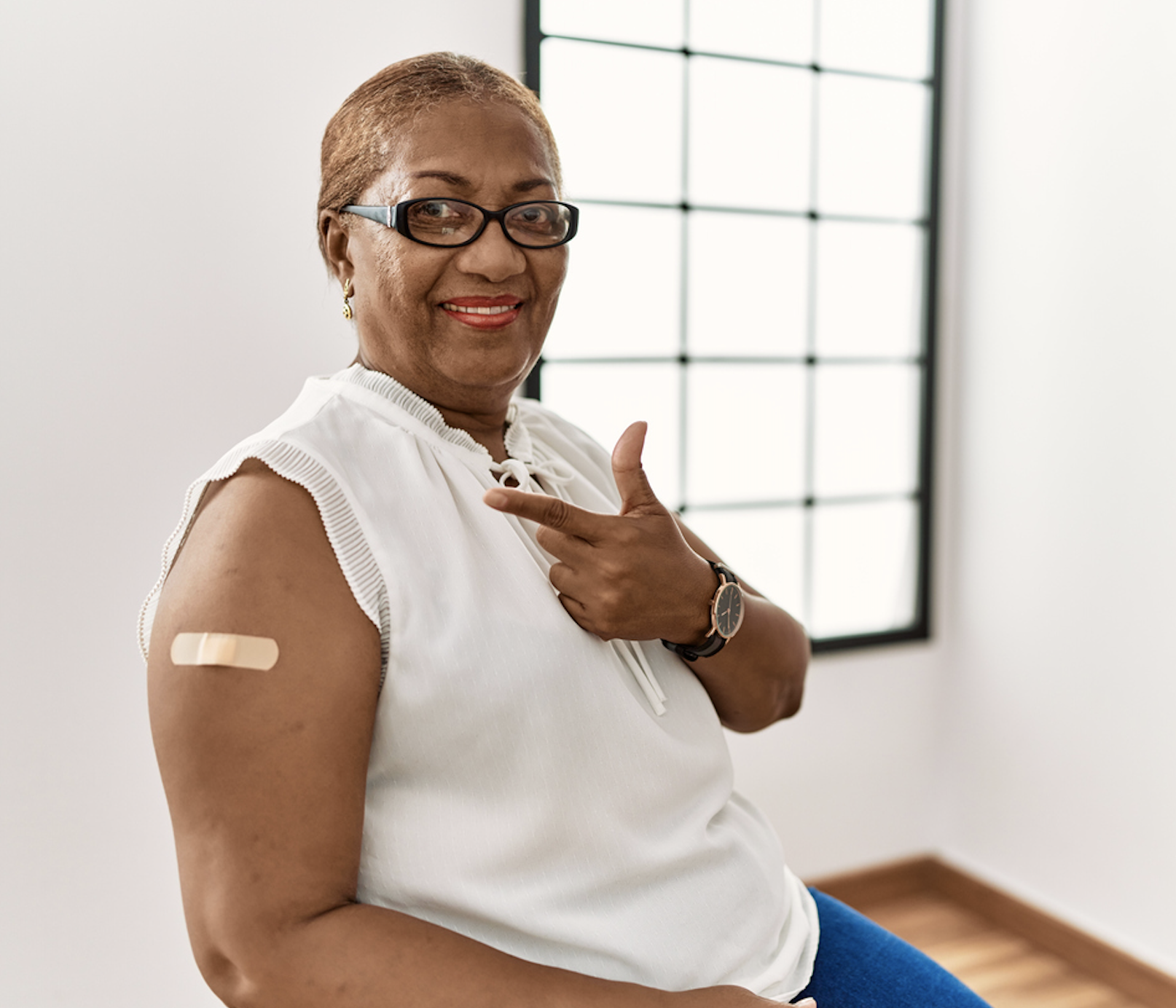Viral Overload: Why You Should Consider The RSV Vaccine This Fall
September 27, 2023

Though Respiratory Syncytial Virus (otherwise known as RSV) was first discovered in 1956, and catching it is almost a right of passage for young children (according to the CDC nearly all children have been infected with the virus by the age of two), a recent survey found that most adults aged 50 and older (60%) report hearing or reading nothing about RSV. Furthermore, 70% of those surveyed had not heard that there is now a vaccine to protect those at risk from RSV, which includes adults aged 60 and over, especially if they are immunosuppressed, or have chronic heart or lung disease. While the CDC has not come out to fully recommend this new vaccine for older adults (instead, they recommend arriving at the decision to take the vaccine in collaboration- i.e., “shared decision-making”- with your health care provider, based upon your individual health status at the time) most experts recommend that older adults take advantage of this brand new vaccine, which is reported to be safe, with few side effects and important protection. It’s reported that the new RSV vaccines can reduce your chance of becoming seriously ill with RSV by 80% and the protection should last up to 2 years.
RSV is typically lumped together with other respiratory viruses that happen beginning in the Fall. The symptoms are usually mild, lasting anywhere from 2-8 days (during which you may be contagious) and the most prominent symptoms include a runny nose, coughing, sneezing, perhaps with a fever and decreased appetite. It usually goes away on its own within a week or two and can usually be handled with over-the-counter medications, rest, and fluids. So what’s the big deal? Well, in children, RSV is the top reason for hospitalization of young children, and in adults, between 60,000 – 100,000 adults are hospitalized each year due to RSV and estimates are that between 6,000-10,000 deaths among those 65 and older are due to RSV each year. Especially for older adults with compromised immune systems or lung problems like asthma and COPD (along with those who live in congregate settings such as nursing homes), RSV can pose a serious and even fatal health risk. That’s why if you or a loved one begins to show signs such as wheezing, shortness of breath, or significant weakness, you need to act quickly and get yourself to an ER. Hospitals can perform PCR tests and do blood work to see if you have RSV. They can also do a chest X-ray if necessary. But there are no effective home rapid tests that you can use on your own. It’s likely if you have these symptoms you may end up being tested for flu, COVID, and RSV in a hospital emergency room.
How do you catch RSV? Typically, the virus can be spread through droplets from a cough or sneeze where it then can enter your eyes, nose, or mouth. You can also get it from an infected surface. It’s reported that RSV can live for many hours on hard surfaces such as a table or crib rails, though it only survives for shorter periods of time on soft surfaces such as skin or tissues. How can you avoid catching RSV? Some of the same protections you employed during the earlier days of COVID-19 will come in handy for avoiding RSV as well. Hand washing is essential, as is distancing yourself from those who are sick or may be infected. You should also make sure if you’re in a crowded indoor spot, it’s well-ventilated, or consider wearing a mask for protection. Cases are already on the rise in the United States, with the southeastern United States currently having the most cases. Last fall, with the return of more normal socialization and less masking, the incidence of RSV was up significantly and this year, during the respiratory virus season in Australia (which takes place before it hits the United States) there were 10 times as many RSV cases as were detected in the previous year. So we may be in for a significant rise in cases here as well.
This year, the best protection for you and for young children in your life will be the new vaccines just released. Two vaccines- Arexvy and Abrysvo – have been approved for adults 60 and older. Only one dose is recommended and both are projected to keep you protected for up to 2 years after immunization. Side effects from these vaccines are largely confined to soreness at the point of injection, muscle pain, fatigue, and headaches. In a very small number of cases, there were reports of abnormal heart rates. Most experts believe the benefits of the vaccine vastly outweigh any risks of being vaccinated for RSV. Should you get the RSV vaccine at the same time you plan on getting your new COVID shot or even this year’s flu vaccine? You should probably space the shots out since there’s no data addressing the effects of receiving all of these vaccines at once. However, if in doubt, consult your physician about receiving multiple vaccines at one time. If you receive your health insurance through Medicare, there should be no costs associated with getting the RSV vaccine. Most private insurers also suggest they will cover the costs of the shot for adults 60 and over who are not covered by Medicare. So, while you may have some confusion and concern about whether to get the RSV shot, it’s something to definitely discuss with your healthcare provider and to understand that given the potential for serious illness, most experts recommend you take advantage of this newly available (and long sought) vaccine against RSV.







